 |
Improving Your Creative Abilities
|
 |
- Keep track of your ideas at all times. Many times
ideas come at unexpected times. If an idea is not written down within
24 hours it will usually be forgotten
|
 |
- Pose new questions to yourself every day. An inquiring
mind is a creatively active one that enlarges its area of awareness.
|
 |
- Keep abreast of your field. Read the magazines,
trade journals, and other literature in your field to make sure you
are not using yesterday's technology to solve toady's problems.
|
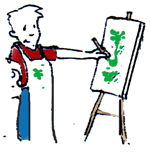 |
- Engage in creative hobbies. Hobbies can also help
you relax. An active mind is necessary for creative growth.
|
 |
- Have courage and self-confidence. Be a paradigm
pioneer. Assume that you can and will indeed solve the problem Persist
and have the tenacity to overcome obstacles that block the solution
pathway.
|
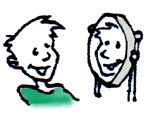 |
- Learn to know and understand yourself. Deepen your
self-knowledge by learning your real strengths, skills, weaknesses,
dislike, biases, expectations, fears and prejudices.
|
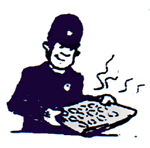 |
- Learn about things outside your specialty. Use cross-fertilization
to bring ideas and concepts from one field or specialty to another.
|
 |
- Avoid rigid, set patterns of doing things. Overcome
biases and preconceived notions by looking at the problem from a fresh
view point, always developing at least two or more alternative solutions
to your problem.
|
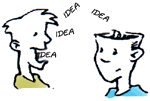 |
- Be open and receptive to ideas (yours and others).
New ideas are fragile; keep them from breaking by seizing on the tentative,
half formed concepts and possibilities and developing them.
|
 |
- Be alert in your observations. Look for similarities,
differences, as well as unique and distinguishing features in situations
and problems.
|
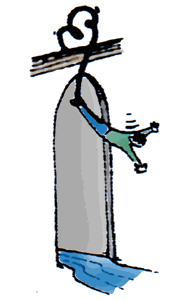 |
- Adopt a risk taking attitude. Fear of failure is
the major impediment to generating solutions which are risky (i.e.,
small chance of succeeding) but would have a major impact if they
are successful. Outlining the ways you could fail and how you would
deal with these failures will reduce this obstacle to creativity.
|
 |
- Keep your sense of humor. You are more creative
when you are relaxed. Humor aids in putting your problems (and yourself)
in perspective. Many times it relieves tension and makes you more
relaxed.
|
|
|
|

























